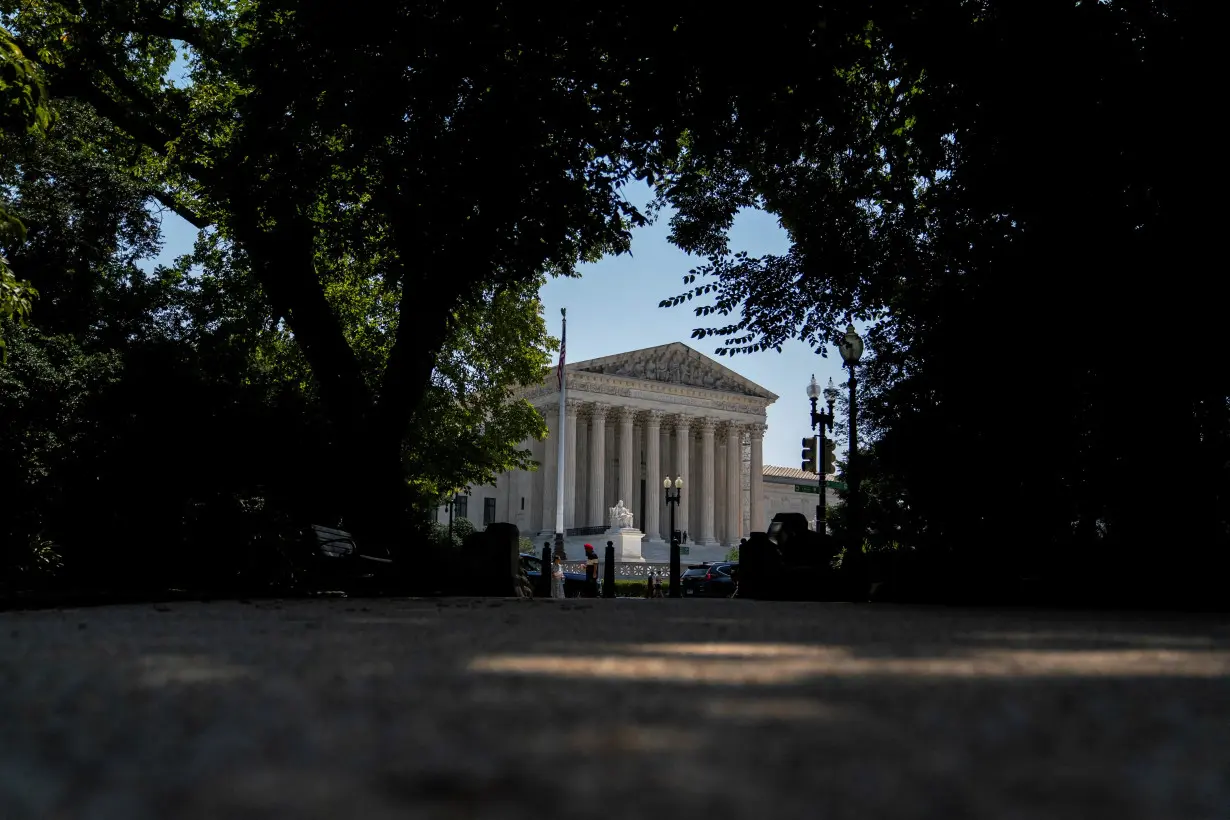By Andrew Chung
(Reuters) - A new federal rule protecting LGBT students from discrimination in schools and colleges based on gender identity that took effect on Thursday remained blocked in 26 states after the U.S. Supreme Court did not act on requests by President Joe Biden's administration to widen its enforcement.
The justices have yet to act on the administration's requests to partially lift lower court injunctions blocking the rule in 10 Republican-led states that had challenged it, while litigation continues.
The complex legal landscape means that the U.S. Education Department can enforce the rule, announced in April, in 24 of the 50 states. The rule expands protections under Title IX of the Education Amendments of 1972, a federal law that bars sex discrimination in federally funded education programs.
A spokesperson for the Education Department said officials "crafted the final Title IX regulations following a rigorous process to realize the non-discrimination mandate of Title IX. The department stands by the final Title IX regulations released in April 2024, and we will continue to fight for every student."
Biden's administration had asked the Supreme Court to intervene in a lawsuit by Louisiana, Mississippi, Montana, Idaho and numerous Louisiana school boards, and another lawsuit by Tennessee, Kentucky, Ohio, Indiana, Virginia, West Virginia and an association of Christian educators.
The administration sought to restore in those states a key provision clarifying that discrimination "on the basis of sex" encompasses sexual orientation and gender identity, as well as the rule's numerous other provisions that do not address gender identity.
The states and the other plaintiffs have said the rule forces schools to allow transgender students to use restrooms and locker rooms, and faculty to use pronouns for transgender students, that correspond to their gender identities. The plaintiffs have argued that the Democratic president's administration has unlawfully rewritten a law designed more than a half century ago to protect women from discrimination in education.
"This is all for a political agenda, ignoring significant safety concerns for young women students in pre-schools, elementary schools, middle schools, high schools, colleges and universities across Louisiana and the entire country," Louisiana Attorney General Liz Murrill said of the federal rule when she announced the state's lawsuit.
Numerous lawsuits successfully blocked the law in 22 states - nearly all Republican-governed. While the administration scored a victory on Tuesday when a federal judge refused to block the rule in Alabama, Florida, South Carolina and Georgia, the Atlanta-based 11th U.S. Circuit Court of Appeals temporarily halted the rule on Wednesday in those states pending its review of the litigation.
The rule makes numerous changes to regulations combating sex discrimination under Title IX, including by covering LGBT individuals as well as strengthening protections for pregnant students, parents and guardians.
The administration has said that protecting LGBT students under Title IX is a "straightforward application" of the Supreme Court's landmark 2020 ruling that a similar law known as Title VII barring workplace discrimination protects gay and transgender employees.
The Supreme Court is reviewing decisions by U.S. District Judge Terry Doughty in Louisiana and U.S. District Judge Danny Reeves in Kentucky. They both concluded that Title IX's reference to sex relates only to "biological" males and females, and that the Supreme Court's 2020 ruling did not apply in this context.
In June, the Supreme Court agreed to hear another case from Tennessee involving a Republican-backed ban on gender-affirming medical care for transgender minors. The court will hear the case in its next term, which begins in October.
(Reporting by Andrew Chung in New York; Editing by Will Dunham)

 Michigan strips two clerks in small town of election duties over hand count plan
Michigan strips two clerks in small town of election duties over hand count plan
 What you need to know about the 2024 US presidential election
What you need to know about the 2024 US presidential election
 BOJ to keep rates steady as politics muddles outlook
BOJ to keep rates steady as politics muddles outlook
 IMF board approves Kenya's reviews, unlocking access to $606 million
IMF board approves Kenya's reviews, unlocking access to $606 million
 Siemens to buy engineering software firm Altair for $10.6 billion
Siemens to buy engineering software firm Altair for $10.6 billion
 Accuser of Sean 'Diddy' Combs cannot remain anonymous, judge rules
Accuser of Sean 'Diddy' Combs cannot remain anonymous, judge rules
 ‘Emily in Paris’ star Lucas Bravo mulling exit from show because he’s ‘frustrated’ with his character’s direction
‘Emily in Paris’ star Lucas Bravo mulling exit from show because he’s ‘frustrated’ with his character’s direction
 Second gambler admits trying to cash in on scheme involving ex-NBA player Jontay Porter
Second gambler admits trying to cash in on scheme involving ex-NBA player Jontay Porter

